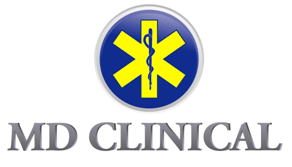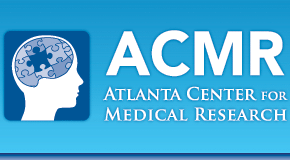Pharmacokinetic Profile of Neupro Patch Administrated at 2 mg, 4 mg, 6 mg and 8 mg/Day Weekly in Patients With Early-stage Parkinson's Disease
| Status: | Recruiting |
|---|---|
| Conditions: | Parkinsons Disease |
| Therapuetic Areas: | Neurology |
| Healthy: | No |
| Age Range: | 18 - 99 |
| Updated: | 6/17/2016 |
| Start Date: | May 2016 |
| End Date: | September 2016 |
| Contact: | Simon Li, MD |
| Phone: | 6097997600 |
A Single Group and Open-label Study to Evaluate Pharmacokinetic Profile of Neupro Patch Administrated at 2 mg, 4 mg, 6 mg and 8 mg/Day Weekly in Patients With Early-stage Parkinson's Disease
To study the profile of Neupro patch administrated at 2 mg, 4 mg, 6 mg and 8 mg/day weekly
in patients with early-stage Parkinson's disease
in patients with early-stage Parkinson's disease
A single group and open-label study to evaluate pharmacokinetic profile of Neupro patch
administrated at 2 mg, 4 mg, 6 mg and 8 mg/day weekly in patients with early-stage
Parkinson's disease
administrated at 2 mg, 4 mg, 6 mg and 8 mg/day weekly in patients with early-stage
Parkinson's disease
Inclusion Criteria:
1. Patient who is capable of giving informed consent and complying with study procedures
2. Patient who has Idiopathic Parkinson's Disease defined by the cardinal sign,
bradykinesia, plus the presence of at least 1 of the following: resting tremor,
rigidity, or impairment of postural reflexes, and without any other known or
suspected cause of Parkinsonism
3. Patient who is Hoehn & Yahr stage less than or equal to 3
4. Patient who is male or female aged greater than or equal to 18 years at Screening
5. Patient who has a Mini Mental State Examination (MMSE) score of greater than or equal
to 25
6. Patient who has a Unified Parkinson's Disease Rating Scale (UPDRS) motor score (Part
III) of greater than or equal to 10 but less then or equal to 30 at Screening
Exclusion Criteria:
1. Patient who has atypical Parkinson's syndrome(s) due to drugs (e.g., metoclopramide,
flunarizine), metabolic neurogenetic disorders (e.g., Wilson's Disease),
encephalitis, cerebrovascular disease, or degenerative disease (e.g., progressive
Supranuclear Palsy)
2. Patient who has a history of pallidotomy, thalamotomy, deep brain stimulation, or
fetal tissue transplant
3. Patient who has dementia, active psychosis or hallucinations, or clinically
significant depression
4. Patient who has a lifetime history of suicide attempt (including an active attempt,
interrupted attempt, or aborted attempt), or has suicidal ideation in the past 6
months as indicated by a positive response ("Yes") to either Question 4 or Question 5
of the Columbia-Suicide Severity Rating Scale (C-SSRS) at Screening
5. Patient who has a history of symptomatic orthostatic hypotension with a decrease of
less than or equal to 20 mmHg in systolic blood pressure (SBP) or great than or equal
to 10 mmHg in diastolic blood pressure when changing from supine to standing position
after having been at supine position for at least 5 minutes within 28 days prior to
the Screening Visit, or SBP less than 105 mmHg at study entry, or reports clinical
signs of clinically significant orthostatic hypotension within 28 days prior to the
Screening Visit.
6. Patient who is receiving therapy with a dopamine agonist either concurrently or has
done so within 28 days prior to the Screening
7. Patient who is receiving therapy with 1 of the following drugs either concurrently or
within 28 days prior to screening: MAO-B inhibitors, DA releasing agents, DA
modulating agent, DA antagonists, neuroleptics, or other medications that may
interact with DA function.
8. Patient who is currently receiving central nervous system active therapy (e.g.,
sedatives, hypnotics, antidepressants, anxiolytics), unless the dose has been stable
for at least 28 days prior to Screening Visit and is likely to remain stable for the
duration of the study. Patients should not take those medications within 8 hours
prior to clinical visits
9. Patient who has a current diagnosis of epilepsy, has a history of seizures as an
adult, has a history of stroke, or has had a transient ischemic attack within 1 year
prior to Screening
10. Patient who has a history of known intolerance/hypersensitivity to non-dopaminegic
antiemetics, such as domperidone, ondansetron, tropisetron, and glycopyrrolate
11. Patient who has any other clinically relevant hepatic, renal and cardiac dysfunction,
or other medical condition or laboratory abnormality including abnormal plasma
magnesium level, which would in the judgment of the investigator, interfere with the
patient's ability to participate in the study
12. Patient who has a history of significant skin hypersensitivity to adhesive or other
transdermal preparations or recent unresolved contact Dermatitis
13. Patient with C-reactive protein levels of 2x of upper limit of normal range
14. Female patient who is pregnant or is breastfeeding or is of childbearing potential
without adequate contraception.
15. Patient with a positive finding in drug screening test or alcohol test
We found this trial at
3
sites
Click here to add this to my saved trials
911 E. Hallandale Beach Blvd
Hallandale Beach, Florida 33009
Hallandale Beach, Florida 33009
954-455-5757

Principal Investigator: Beth Safirstein
Click here to add this to my saved trials
811 Juniper St NE
Atlanta, Georgia 30308
Atlanta, Georgia 30308
(404) 881-5800

Principal Investigator: Robert Riesenberg
Phone: 404-881-5800
Atlanta Center for Medical Research Welcome to the Atlanta Center for Medical Research, a leader...
Click here to add this to my saved trials